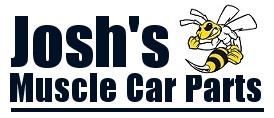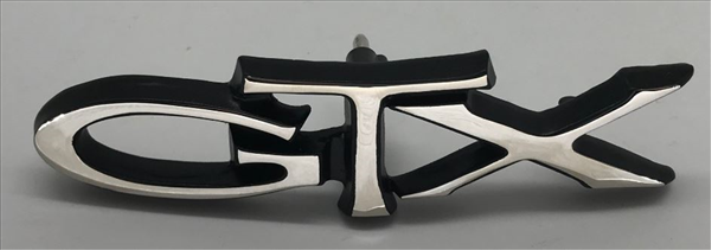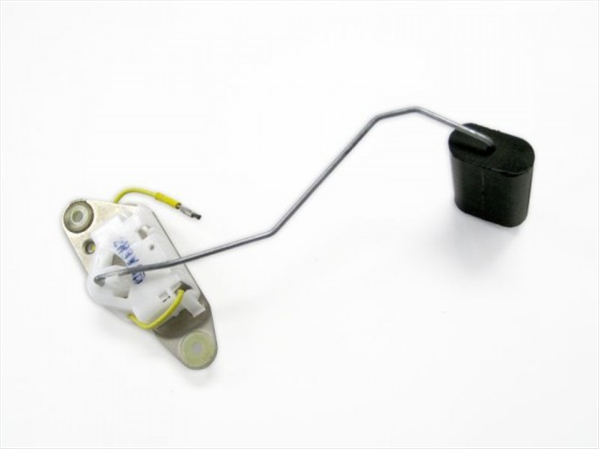|
Category List Featured Items
Y1-VC6730
1968 Plymouth GTX Grille Emblem - Authentic Reproduction for Classic Restoration. Crafted with precision, these emblems feature durable materials and exact detailing for an authentic factory appearance
SC7311
1970 Plymouth Barracuda 'Cuda Lower Grille Valance Insert. Correct Silver color as original.
Y1-FJ9275
OEM replacement fuel sending unit for 2003-2004 Ford Mustang Cobra, designed to meet factory specifications.
1394579
1970 Buick Gran Sport & GS-455 Front Hood Lip Molding - Die Cast Chrome Plated
SC7312
1970 Plymouth SuperBird Body to Wing Gaskets Set. Sold as a two piece set.
Y1-VC5985
1970-1975 Dodge Dart Fender, Quarter Panel & Trunk Lid Emblem - OEM Reproduction (3505419, 3445985). Crafted with precision, these emblems feature durable materials and exact detailing for an authentic factory appearance
COPY-1881
1970 A-Body Demon Duster Dual Twin Hood Scoops
DD0683
1970 Plymouth Roadrunner Superbird Nose Decal
Category
|
|
Item Details |
|
|
Josh's Muscle Car Parts is a company that specializes in providing parts and accessories for classic and vintage cars. The company was founded in 1999 and has since become one of the most respected classic car parts suppliers in the Ohio..
Josh's Muscle Car Parts offers a wide range of products for a variety of classic and vintage vehicles, including Chevrolet, Ford, Dodge, and Plymouth. The company's product line includes everything from body panels and trim pieces to engine parts and accessories. Josh's Muscle Car Parts also offers a number of services, such as restoration consulting and design assistance.
One of the things that sets Josh's Muscle Car Parts apart from other classic car parts suppliers is the company's commitment to quality. Josh's Muscle Car Parts sources its parts from trusted manufacturers, and all of its products are rigorously tested to ensure that they meet the company's high standards. The company also has a team of experienced technicians who are available to answer customer questions and provide technical assistance.
In addition to its products and services, Josh's Muscle Car Parts is known for its customer support. The company has a knowledgeable and helpful customer service team that is available to answer questions and provide assistance. Josh's Muscle Car Parts also has an active online community, where customers can share their experiences and get advice from other classic car enthusiasts.
Overall, Josh's Muscle Car Parts is a well-respected and reliable source for classic and vintage car parts. The company's commitment to quality and customer service has helped it to earn a loyal following among classic car enthusiasts around the world.
The 1960s muscle car era was a time of great innovation and growth in the automotive industry. It was a period of intense competition between car manufacturers, as they sought to outdo one another with increasingly powerful and sophisticated vehicles.
During this time, muscle cars became increasingly popular, particularly among younger car enthusiasts. These cars were known for their large, powerful engines, aggressive styling, and high-performance capabilities. Some of the most iconic muscle cars of the era include the Chevrolet Chevelle SS, the Ford Mustang, and the Plymouth Road Runner.
The muscle car era was marked by a number of technological innovations that helped to push the limits of automotive performance. One of the most significant of these was the development of the V8 engine, which allowed for increased horsepower and torque. Other innovations included the use of lighter materials in car construction, the adoption of fuel injection systems, and the use of advanced transmission technologies.
The muscle car era was also marked by a strong sense of cultural significance. These cars were symbols of American muscle and power, and they were often featured in popular culture, such as movies and music. The muscle car era came to an end in the 1970s, as rising fuel prices and stricter emissions regulations led to a shift towards more fuel-efficient vehicles.
Despite the end of the muscle car era, these vehicles continue to hold a special place in the hearts of car enthusiasts around the world. They are celebrated as symbols of a bygone era of automotive innovation and power, and their legacy lives on in the modern high-performance vehicles of today.











